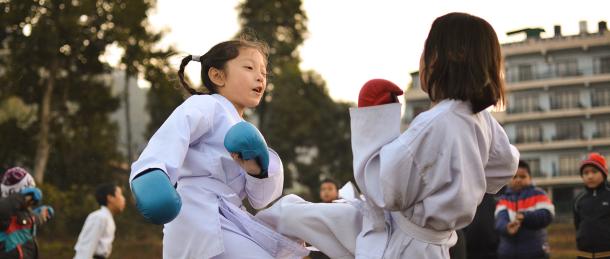
Jacob Lund/Shutterstock.com
Women and Sports
The gender dimension within sport policies and programmes is of critical importance for UNESCO.
The International Charter of Physical Education, Physical Activity and Sport, adopted by UNESCO’s 38th General Conference, affirms that ‘equal opportunity to participate and be involved at all supervision and decision-making levels in physical education, physical activity and sport, whether for the purpose of recreation, health promotion or high performance, is the right of every girl and every woman that must be actively enforced’.
UNESCO’s physical education and sport programmes endeavour to mainstream the gender dimension
which can be structured around three main types of interventions

© Pexels / kampus production
These issues are reflected, in the Kazan Action Plan (KAP), which plays an important role in the fulfilment of the SDG 5 of the Agenda 2030, which states the need to ‘achieve gender equality and empower all women and girls’.

© Unsplash / Jjyotirmoy Gupta
Partnerships
To achieve these goals and promote women’s and girl’s empowerment and gender equality in and through sport, UNESCO works in partnership with national and international organizations, including notably:
And also:
- Other international sports organizations
- Sporting goods industry and the wider business community
- Media
- Academia






